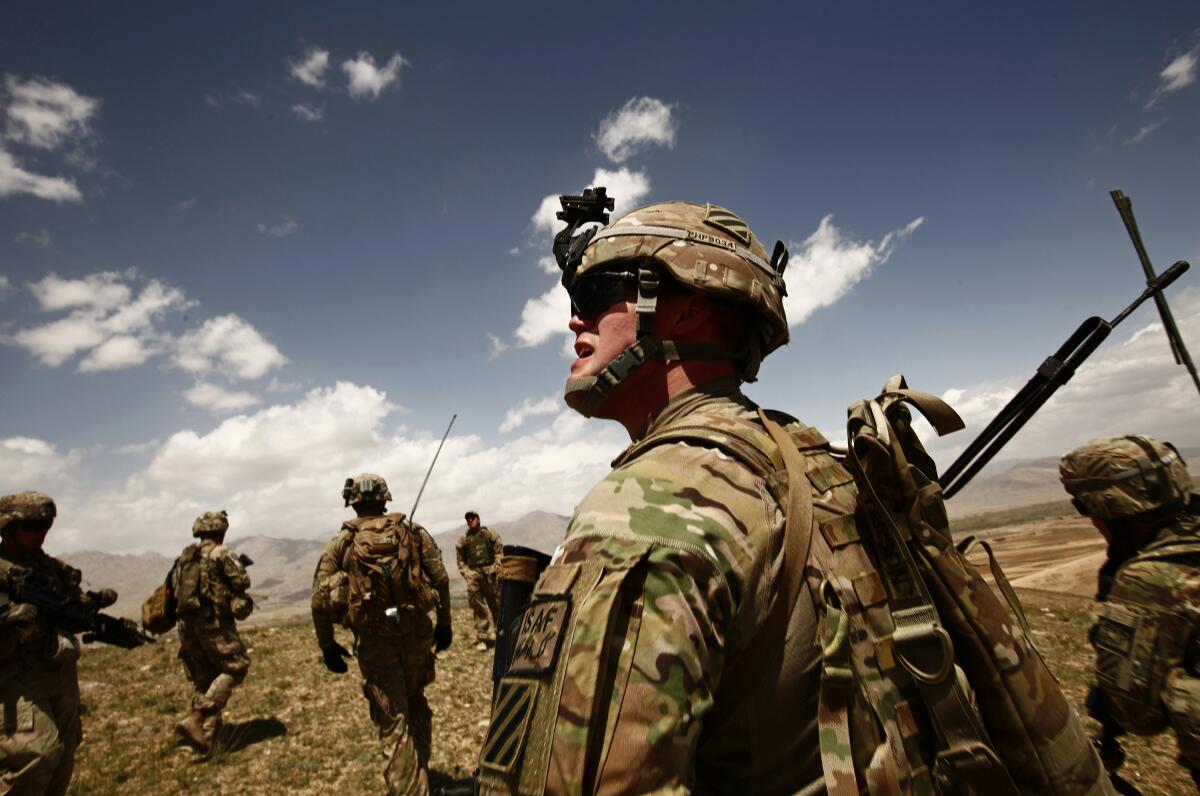Letters to the Editor: A Vietnam vet on Afghanistan: Once again, policy makers knew this would happen

- Share via
To the editor: In 1975, I watched on television as Saigon and the rest of South Vietnam fell to troops from the North. I was heartbroken. Not only did I know people who were almost certainly still there and would face dire consequences, I also wondered what my time there had been for. (“Mistakes the U.S. made in Vietnam were repeated in Afghanistan. We must break the cycle,” Opinion, Aug. 18)
Later, I came to understand that American policymakers had long believed defeat would be the inevitable outcome of our involvement in Vietnam. They knew that when U.S. forces were withdrawn, the South Vietnamese government would soon collapse.
Now, as we watch the stunning collapse of the U.S.-backed Afghan government, the only thing I can think is that we always knew this would be the climax of our longest war. The only thing that should be surprising is the staggering speed with which it came.
Now, I think of the men and women who spent their youth in that faraway place, some never coming back to their families. Those who served in such circumstances have to find our own justification for what we did. We have to arrive, for ourselves, at the reasons that it was or was not worth our sacrifice, and then we have to live with that.
It won’t come from our political leaders, and it won’t come from any chain of command. We just have to decide for ourselves. It will take a long time for some. Others will never come to that place.
So today, I’m heartbroken again. The future is not bright for Afghanistan. But then, we always knew this would be the case.
David Perkins, Porter Ranch
..
To the editor: The fall of Afghanistan is a kind of déjà vu for me.
In February 1975, I was working as a microbiologist for a pediatric nongovernmental organization in Phnom Penh, Cambodia, as the Khmer Rouge pressed closer and closer, shelling some parts of the city. Americans were air-lifted from the U.S. embassy to Bangkok, leaving behind all of our Cambodian friends.
What happened to Cambodia broke my heart; what’s happening to Afghanistan is breaking it again.
Yet, I have some hope. In 2006 I returned to Phnom Penh, where I saw imagination, perseverance and soaring human spirit, in spite of old and new assaults. That hope in the irrepressible human spirit gives me the strength to pray for the people of Afghanistan.
Barbara Eurich-Rascoe, Pasadena
..
To the editor: In his op-ed article “Afghanistan’s rapid fall shows Biden was right to pull out,” Charles A. Kupchan repeats a common mistake by referring to the “forever wars of the Middle East.”
To be fair, it should be noted that there have been no American fatalities in Afghanistan since February 2020. In essence, the 3,000 U.S. forces who were stationed in Afghanistan prior to President Biden’s withdrawal announcement were a stabilizing force.
When the president announced their removal by a certain date, tragic destabilization resulted.
Should we consider American military forces stationed in Germany, Japan, South Korea and Kosovo as perpetuating “forever wars” in those countries and regions, or providing peace and stability?
Dan Caldwell, Malibu
The writer is professor emeritus of political science at Pepperdine University and author of the 2011 book “Vortex of Conflict: U.S. Policy Toward Afghanistan, Pakistan, and Iraq.”
More to Read
A cure for the common opinion
Get thought-provoking perspectives with our weekly newsletter.
You may occasionally receive promotional content from the Los Angeles Times.









